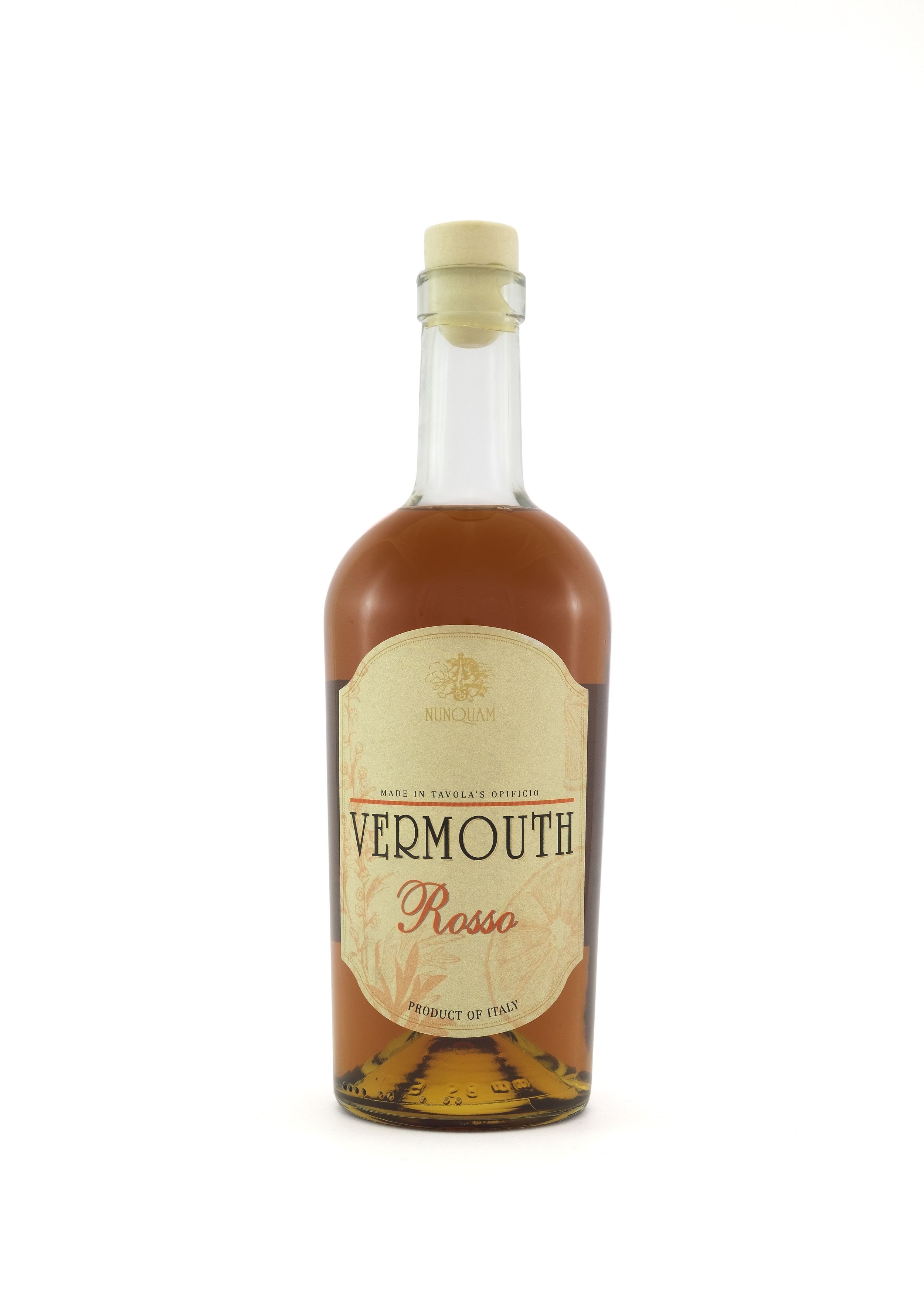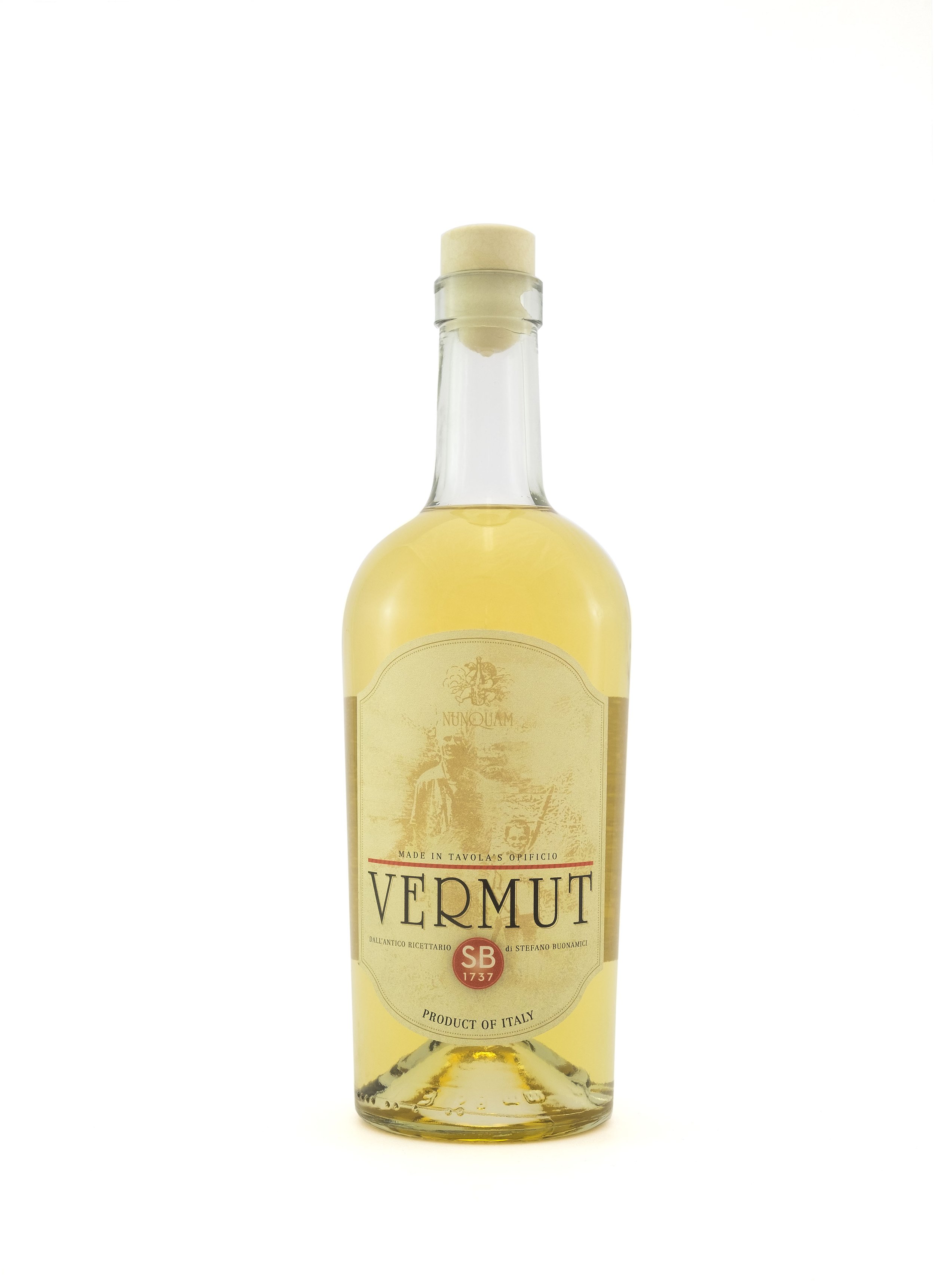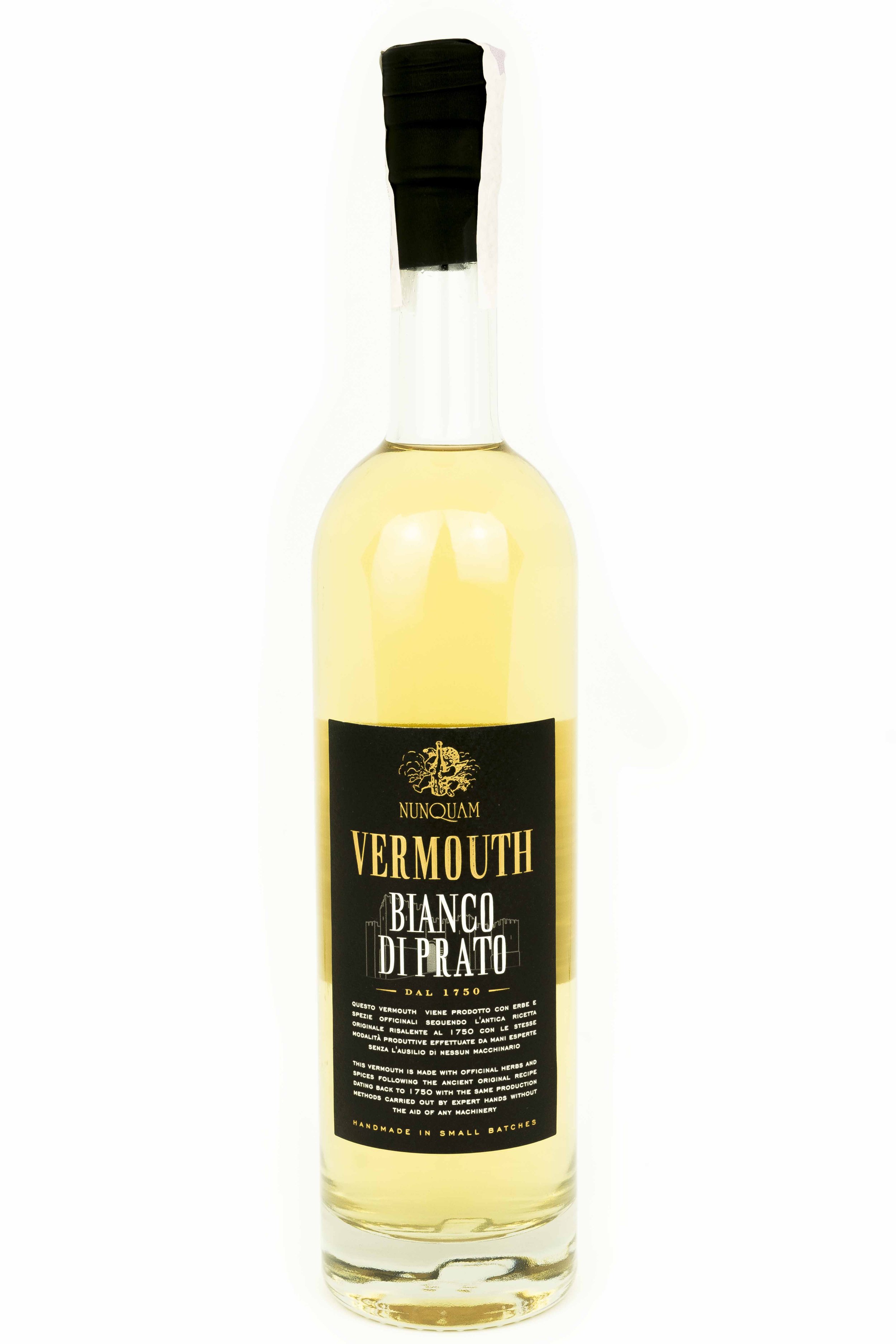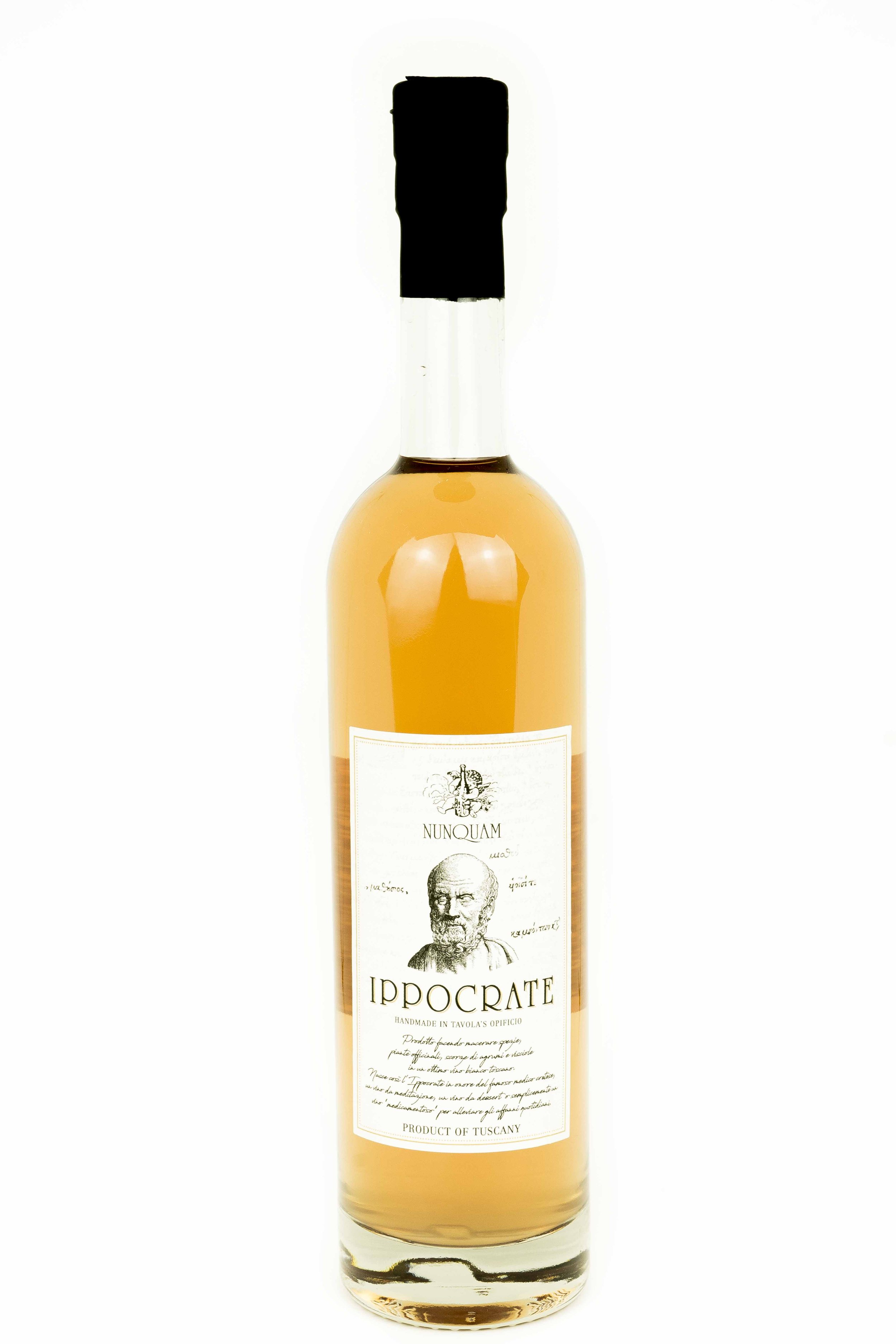Liquors
Selected Variants
Nunquam | Vermouth
Nunquam | Liquore di Caffe
Nunquam | Assorted Liquors
Vermouth Rosso
The view is clear, color drain garnet tending to orange. The nose is very intense, persistent, fine, broad, with blackcurrant fruity aromas, bitter orange and macerated blackberries, mountain hay, field dried flowers and chamomile, caramel and mild tamarind. The taste is sweet in a balanced, very fruity, warm, with a pleasant bitter vein, full and continuous. Aftertaste: bitter vein and fruity notes, vegetable and spicy.
Produced using traditional methods with the help of twenty different types of herbs (aromatic and medicinal) and spices and peels of citrus fruits pounded in a mortar and macerated with neutral alcohol and white wine into stainless steel for several days.
During the maceration, the better to extract oils and essences are carried daily pumping. Then, the transfer (to remove the solid parts), the addition of a syrup made with sugar and wine, and aging for 4-5 days in suitable local. Followed by a slow craft filtration, bottling, labeling and manual a short aging in the bottle into the cellar.
Ingredients: White wine, alcohol, caramel (150a) spices, sugar, citrus peel and medicinal plants
16% Vol.
Vermouth Bianco
Elder brother of White Vermouth from Prato, it is probably also the forerunner of Vermouth in general. It born as flavored wine produced at year end to be tasted during the festive season. The view is clear, pale amber color The nose is very intense, persistent, with herbaceous and fruity scents. The taste is sweet in a balanced, very fruity, warm, with a pleasant bitter aftertaste of the right persistence.
The original recipe was written down in 1737 by Stefano Buonamici who was a member of a noble family of Prato, also related to Galileo Galilei, and who delighted in collecting drink recipes use of those times. After a careful historical research / teaching lasted several years, Fabio managed to retrieve the recipe and put on the market in 2007 the first bottle of this excellent white vermouth. It is produced manually with great Tuscan white wine with spices and medicinal plants biodynamic or biological as secular tradition.
Ingredients: white wine, alcohol, sugar, enula campana, roman and Pontic absinth, gentian, zedoaria, nutmeg, cinnamon, aromatic calamo, cloves, mace, centaury, coriander, lemon zest, sweet orange peel, bitter orange peel and peach peel.
15% Vol.
Vermouth Bianco di Prato
The origin of White Vermouth from Prato goes back to the rural tradition: it was produced by the housewifes with not mature white grape and herbs and served as aperitif or liqueur during Christmas feast. The product typically is not only the used ingredients, but also the transformation process and the used utensils. All the preparation was done by skilled hand without mechanic help; the same is happening now, all done by hand as an old recipe.
All the aromatic, officinal and spontaneous herbs and different spices (elecampane, gentian, galangal, cinnamon, aromatic calamus, cloves, centaury, roman and Pontic absinth, coriander, nutmeg, rinds of citron and sweet and bitter orange, dried rinds of quince peach) have to be crushed in one marble pestle and then put in a good Tuscan white wine to soak for the necessary time. Then sugar and some alcohol have to be added and kept all few days under maceration. Finally filtered and put into bottles or flasks as for the old tradition. The ready Vermouth has a full yellow colour lightly amber with a sweet slightly acid taste, an agreeable bitterish aftertaste and an intense spiced and fruity flavours.
Suggestion is to drink it cold as aperitif in wide tulip-stem-glass, or after a lunch/dinner together with biscuits. To be tried also with some spiced chocolate or with delicate marbled cheese. Or simply during any moment of the day for a few minutes relax/break, savouring the life’s pleasure!
Ingredients: white wine, alcohol, sugar, enula campana, gentian, galangal, cinnamon, aromatic calamus, cloves, centaurea minor, roman and Pontic absinth, coriander, nutmeg, lemon peel and sweet and bitter orange.
15% Vol.
Ippocrate
Ippocrate, father of modern medicine and born in Kos on 460 before Christ, has been attributed the invention of “vinum absinthiatum”, done through a maceration of dittany’s and Artemisia/absinthium’s flowers into wine. It’s practically the basic recipe for Vermouth, which has been enriched later thanks to merchants from Venice, from Prato and others, who started to import from India, from Indonesia and from East Africa a lot of new spices as cardamom, cinnamon, cloves, nutmeg, rhubarb and others. Later from America arrived to be included into infusion also vanilla and cinchona bark.
Many liquor distillers in Piedmont wanted to have the authorship of it, but in many other places in Italy there were productions of it just before that Benedetto Carpano announced the invention in the year 1786.
It’s an elaborate wine for meditation, done through a maceration of 15 different herbs and spices, all well indicated on the wine’s label to confirm the authenticity. The addition of cherries then gave the product an aromatic note, fruity but well-integrated overall balance of the product. It’s perfect also with dessert, especially with chocolate dessert.
Ingredients: Tuscan white wine (Trebbiano, Chardonnay), neutral alcohol, sugar, amarasche wild, enula bell, cinnamon, sweet flag, centaury, coriander, gentian, pontic wormwood, wormwood, galangal, cloves, nutmeg, peel lemon, sweet orange peel, bitter orange peel
16.50% Vol.
Coffee Liqueur
This liqueur is obtained from the crus of Huehuetenango Guatemala Arabica Coffee (Slow Food Presidium) ground and then put together in infusion into neutral alcohol at 96 °. By adding water, sugar and nothing else that we get a Liquor He astounds for its floral perfumes, cleaning that leaves the palate, for its distinctive aftertaste that along with the notes of the same good coffee there also leaves toasted aromas and caramel.
Great invigorating tonic and digestive.
Any impurities on the surface do not affect the quality, but rather They are the typical testimony of a strictly artisan production. It is advisable to taste it cold.
Ingredients: Neutral alcohol hydrated, sugar, coffee Huehuetenango-Guatemala
32% Vol.








